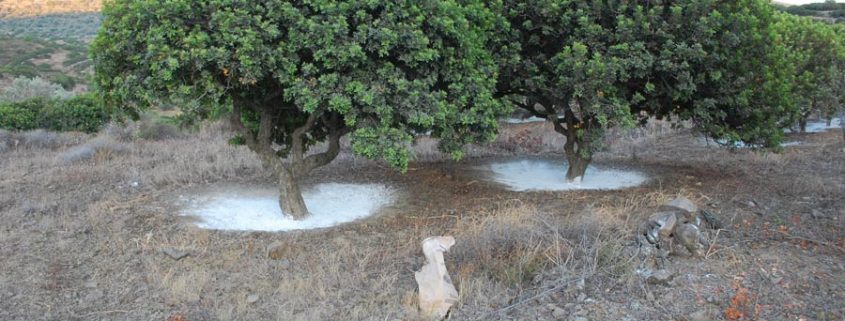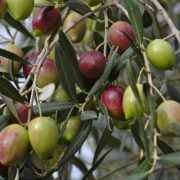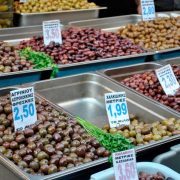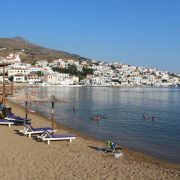Mastiha is a product that comes from the mastic tree. The sticky secretion, the resin, has the color of old wax and might not seem very special, but it has become a product that is known and wanted all over the world. Mastic has not only a unique taste but it has also been shown by scientific research that it is beneficial for the health. When a mastiha tree produces the resin, locals often refer to it as “tears”, or the “crying mastiha tree”!
Where mastic is produced?
It is a mystery, but mastiha is ONLY produced on the island of Chios where it has suitable ecological conditions to grow the trees. Since those trees are very difficult to grow and produce the mastic tears, the product is rather expensive. Locals even say that if a mastic-producing tree is replanted in the north of the island, it won’t “cry”.
What exactly is mastic?
Traditionally, mastic used to be a natural chewing gum with a woody-resin flavor. Nowadays Mastiha is used in much more ways: from candy to cosmetics, for cooking and pharmaceuticals.
Amongst other Greek products (like for example Greek cheese or wine), Chios Mastiha is protected by the European Union as a Protected Designation of Origin product (PDO).
When you “eat” mastiha the traditional way, as chewing gum, you take a few pieces of the resin, let them moisten in your mouth and then chew on them like chewing gum. Even if the taste is a bit bitter in the beginning, keep chewing and after a while, you will taste a light herbal flavor.
Mastiha also has a presence in the Greek cuisine and used in several recipes. In Greece, many sweets have Mastiha as one of the ingredients. Some examples are tsoureki (sweet bread), rice pudding and loukoumi. With the Mastiha liqueur, you can also make fantastic cocktails. In Turkey, where Mastiha is used in desserts and drinks, it is called “sakiz”, the Turkish name for Chios. In Egypt, it is used to add flavor to soups.
When you visit Greece next time, it might be a good idea to buy an original Mastic gift from the many Mastiha Shops all over Greece and in the Athens airport.
So, can you answer the following quiz questions?
1. Which is the name of the ice-cream made with “mastiha”?
a. kamaki, b. kaimaki, c. kalamaki (*see below for the explanation of the words)
2. On which Greek island “mastiha” is produced?
a. Kos, b. Lesbos, c. Chios
++++++++++++++++++++++++++++++++++++
Solutions: 1.b 2.c
For your information, useful Greek daily language:
Kamaki | καμάκι = “harpoon” but mostly used metaphorical: «Kamaki» is the word for a Greek male who spends most of his time in tourist areas to “fish for” girls, in the hope to have a love affair or sex soon!
Kalamaki | καλαμάκι = straw. Something you need daily in Greece to drink your frappe ( ice coffee) , fresh fruit smoothie or cocktail!
+++++++++++++++++++++++++++
Do you want to immerse yourself in the Greek language and grow your reading and listening skills?
Then the “Ultimate Listening Comprehension eBook” might be what you are looking for.
This eBook contains the entire Greek text of the English translation here above, as well as another 8 texts, all related to Greece and Greek culture.
On top of that, the Audio-mp3 files are included, so you can listen to a native Greek speaker while improving your listening skills in Greek.
The eBook is perfect to improve your reading and listening skills, especially if you are an intermediate-advanced student.
Ready to read the entire article in Greek, and listen to the Greek Audio-file? Then click here for more info about the eBook.





